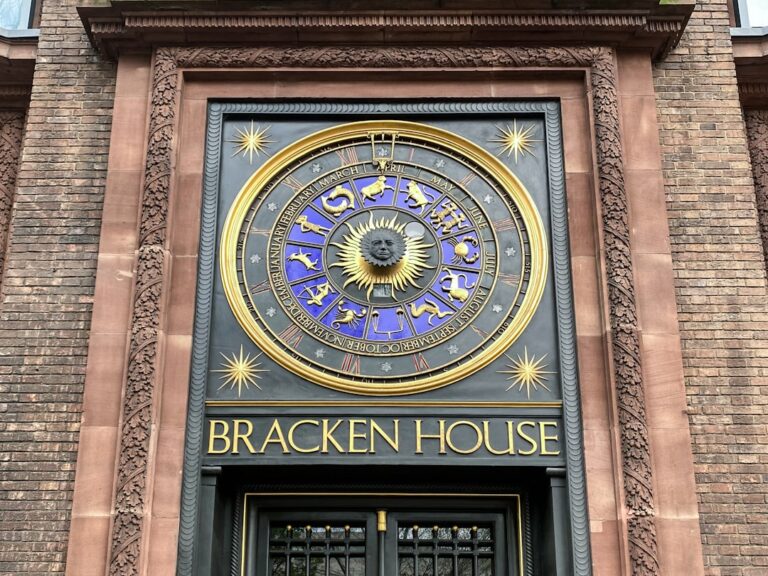cigar box guitar history
The origins of cigar box guitars can be traced back to the resourceful spirit of musicians who sought to create instruments from readily available materials. You might find it fascinating that these unique stringed instruments emerged in the mid-19th century, primarily in the United States. As cigars became increasingly popular, the wooden boxes they came in were often discarded or repurposed.
This led to a creative solution for those who wanted to make music without the means to purchase traditional instruments. The simplicity of the design allowed for a wide range of experimentation, making it an appealing option for aspiring musicians. As you delve deeper into the history, you’ll discover that the cigar box guitar is not just a product of necessity but also a symbol of ingenuity.
The early builders often used whatever materials they had on hand, including broomsticks for necks and strings made from fishing line or wire. This DIY approach not only made music accessible to many but also fostered a sense of community among musicians who shared tips and techniques. The cigar box guitar became a canvas for personal expression, reflecting the diverse backgrounds and experiences of its creators.
Key Takeaways
- Cigar box guitars have their origins in the early 19th century, when impoverished individuals in the southern United States crafted makeshift instruments out of cigar boxes and other readily available materials.
- The 19th century saw the rise of cigar box guitars as a popular folk instrument, with their simple construction and unique sound making them a favorite among musicians of the time.
- In the 20th century, cigar box guitars transitioned from a folk instrument to a DIY project, as people began building and playing them as a hobby rather than a necessity.
- The 21st century has brought about a revival of interest in cigar box guitars, with musicians and enthusiasts rediscovering the charm and versatility of these handmade instruments.
- Famous musicians such as Bo Diddley and Seasick Steve have embraced cigar box guitars, incorporating them into their music and contributing to their resurgence in popularity.
The Rise of Cigar Box Guitars in the 19th Century
The Roots of Blues Music
As you explore this era, you’ll notice how the cigar box guitar became intertwined with the development of blues music, serving as a precursor to more sophisticated stringed instruments. The rise of cigar box guitars during this period also coincided with significant social changes. As you consider the historical context, you’ll see that many musicians were seeking ways to express their experiences and emotions through music.
A Voice for Storytelling
The cigar box guitar provided an outlet for storytelling, allowing players to convey their struggles and triumphs. This connection between music and personal narrative helped solidify the instrument’s place in American folklore, making it a cherished artifact of cultural heritage.
A Lasting Legacy
Today, the cigar box guitar remains a testament to the power of music to bring people together and preserve cultural traditions. Its humble origins belie its significant impact on the development of American music, and its continued popularity is a tribute to the ingenuity and creativity of its early players.
Cigar Box Guitars in the 20th Century: From Folk Instrument to DIY Project

As you move into the 20th century, you’ll notice a shift in how cigar box guitars were perceived. While they remained popular among folk musicians, they also began to attract the attention of hobbyists and DIY enthusiasts. The rise of the counterculture movement in the 1960s played a significant role in this transformation.
You might find it interesting that many young people sought alternatives to mainstream music and commercial instruments, leading them back to the simplicity and authenticity of cigar box guitars. During this time, you may also observe that the internet began to play a crucial role in reviving interest in these instruments. Online forums and social media platforms allowed enthusiasts to share their creations, techniques, and experiences with a global audience.
This newfound accessibility encouraged more people to experiment with building their own cigar box guitars, leading to a resurgence in popularity. The DIY ethos became a defining characteristic of this era, as musicians embraced the idea of crafting their own instruments as a form of self-expression.
The Revival of Cigar Box Guitars in the 21st Century
Entering the 21st century, you will find that cigar box guitars have experienced a remarkable revival. This resurgence can be attributed to several factors, including a growing interest in handmade and artisanal products. You may appreciate how contemporary musicians are increasingly drawn to unique sounds and unconventional instruments, leading them to explore the rich history of cigar box guitars.
As you observe this trend, you’ll see that many artists are incorporating these instruments into their music, blending traditional styles with modern influences. Moreover, workshops and festivals dedicated to cigar box guitars have emerged across the globe, creating spaces for enthusiasts to connect and share their passion. You might find it inspiring that these events often feature performances, demonstrations, and opportunities for hands-on learning.
This sense of community fosters creativity and innovation, encouraging both seasoned players and newcomers to experiment with their craft. As you engage with this vibrant culture, you’ll discover that cigar box guitars are not just relics of the past but living instruments that continue to evolve.
Famous Musicians and Cigar Box Guitars
As you explore the world of cigar box guitars, you’ll encounter several famous musicians who have embraced these unique instruments in their work. Artists like Seasick Steve have brought significant attention to cigar box guitars through their performances and recordings. You may find it fascinating how Steve’s raw sound and storytelling resonate with audiences, showcasing the instrument’s ability to convey deep emotions and experiences.
His use of cigar box guitars has inspired countless musicians to explore this unconventional path. In addition to Seasick Steve, other notable musicians have also incorporated cigar box guitars into their repertoire. You might be intrigued by how these artists have used the instrument to create distinctive sounds that set them apart from mainstream music.
By embracing the spirit of DIY craftsmanship and authenticity, they have helped elevate cigar box guitars from obscurity to recognition on larger stages. As you listen to their music, you’ll appreciate how these instruments contribute to a rich tapestry of sound that reflects both tradition and innovation.
The Influence of Cigar Box Guitars on Modern Music

The Rise of Cigar Box Guitars in Modern Production
Many modern producers are now incorporating cigar box guitars into their work, recognizing their potential for creating distinctive sounds that stand out in an increasingly saturated music industry. This trend is particularly evident in the world of independent music, where artists prioritize unique sounds over commercial appeal.
A Symbol of Authenticity and Creativity
Cigar box guitars have become symbols of authenticity and creativity, allowing independent artists to express themselves freely and push the boundaries of conventional music. By embracing unconventional instruments, these artists are able to carve out their own niches in the music world.
Fostering a Sense of Community
This movement has fostered a sense of community among musicians who value craftsmanship and originality over mass production. As a result, cigar box guitars continue to inspire new generations of artists seeking to make their mark on the music world.
The Art of Building and Playing Cigar Box Guitars
Building and playing cigar box guitars is an art form that combines craftsmanship with musicality. If you’re considering taking up this hobby, you’ll find that constructing your own instrument can be a deeply rewarding experience. The process allows you to tap into your creativity while learning about woodworking and sound design.
You might enjoy experimenting with different materials for the body, neck, and strings, discovering how each choice affects the instrument’s tone and playability. Once you’ve built your cigar box guitar, you’ll likely find joy in learning how to play it. The simplicity of its design makes it accessible for beginners while still offering depth for more experienced musicians.
You may appreciate how playing a cigar box guitar encourages improvisation and experimentation, allowing you to develop your unique style. As you immerse yourself in this art form, you’ll discover a sense of connection not only with your instrument but also with the rich history and community surrounding cigar box guitars.
The Future of Cigar Box Guitars: Innovation and Creativity
Looking ahead, the future of cigar box guitars appears bright with endless possibilities for innovation and creativity. As technology continues to advance, you may find it exciting how builders are incorporating modern materials and techniques into their designs. For instance, some artisans are experimenting with electric pickups or digital effects to enhance the sound of traditional cigar box guitars.
This fusion of old and new opens up new avenues for musical exploration. Moreover, as you engage with online communities dedicated to cigar box guitars, you’ll likely witness an ongoing exchange of ideas and techniques among builders and players worldwide. This collaborative spirit fosters an environment where creativity thrives, encouraging individuals to push boundaries and redefine what is possible with these instruments.
As you participate in this vibrant culture, you’ll be inspired by the innovative approaches taken by fellow enthusiasts who continue to breathe new life into the world of cigar box guitars. In conclusion, as you reflect on the journey of cigar box guitars from their humble origins to their current status as symbols of creativity and innovation, you’ll appreciate their enduring appeal across generations. Whether you’re drawn to building your own instrument or simply enjoying the sounds created by others, there’s no denying that cigar box guitars hold a special place in the hearts of musicians everywhere.
Embrace this rich history and consider how you might contribute your voice to this ever-evolving narrative.
If you are interested in learning more about the history of cigar box guitars, be sure to check out the article “The History of Cigar Box Guitars” on The Humidor Depot website. This article delves into the origins of these unique instruments and how they have evolved over time. It’s a fascinating read for anyone who appreciates the craftsmanship and creativity that goes into making cigar box guitars.
FAQs
What is a cigar box guitar?
A cigar box guitar is a primitive stringed musical instrument that uses an empty cigar box as the resonator. It typically has one or more strings and is played by plucking or strumming.
What is the history of the cigar box guitar?
The history of the cigar box guitar can be traced back to the mid-19th century when African American slaves in the southern United States created them using whatever materials they had access to, including cigar boxes, broomsticks, and baling wire. These homemade instruments were used to play music and provide entertainment.
How did the cigar box guitar evolve over time?
Over time, the cigar box guitar evolved from a simple homemade instrument to a popular folk instrument. It gained popularity during the Great Depression when many people could not afford to buy traditional instruments. In recent years, there has been a resurgence of interest in cigar box guitars as a DIY musical instrument.
What are some famous musicians who have played cigar box guitars?
Famous musicians who have played cigar box guitars include Bo Diddley, Carl Perkins, and Jimi Hendrix. These musicians have helped to popularize the instrument and showcase its unique sound in various music genres.
How is a cigar box guitar played?
A cigar box guitar is played by plucking or strumming the strings, much like a traditional guitar. It can be played with a slide or fretted with the fingers to produce different notes and melodies.






